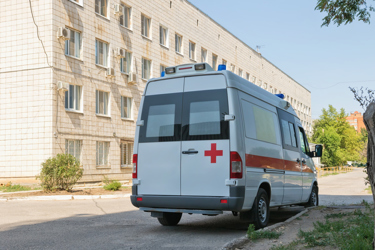AGTC Goes Mobile To Avoid Clinical Trial Chaos

By Matthew Pillar, Editor, Bioprocess Online

When leaders at gene therapy company AGTC realized how disruptive COVID-19 might become, they developed a plan—several of them, in fact—to minimize clinical chaos.
Sue Washer’s life is dedicated to biopharma. The president & CEO of the early clinical-stage gene therapy company AGTC is working toward 40 years in the space, with deep roots at Abbott and Eli Lilly & Company and more than a dozen years in service to bio associations and organizations. On a soon-to-be-released episode of The Business of Biotech podcast, Washer shares her approach to managing AGTC through what's been one of the most challenging times to be conducting clinical trials. Here’s a quick preview of some of the most poignant advice Washer shares with The Business of Biotech.
Lean Into Your Network
“When the pandemic first hit, a group of us on the BioFlorida board that are all leading emerging stage companies started having weekly meetings together. In those meetings, we discuss how our companies are doing and how we’re all addressing the pandemic. We discuss what's going on at the FDA, and we discuss business decisions like remote work in the context of the actions our state government is taking. A big value of belonging to an association like BioFlorida is the opportunity to tap into some collective wisdom. None of us have gone through this before. So to have a weekly touchpoint to bounce ideas off of each other was invaluable.”
Address COVID-Induced Clinical Concerns
We were most concerned about our ongoing clinical trials. We had announced in February that we had finished enrollment in our ongoing trials, but once patients are enrolled, they still need to be followed. Job one is assuring that patients are safe and that nothing untoward is happening. Monitoring safety generally requires visits. So we were very concerned right off the bat about the safety of the patients, being able to collect safety data, monitor their health, and continue to collect signs of biological activity, which is what we conduct trials for. Paired with patient safety concerns was the safety of our employees and their families.
Create Multiple, Fluid Plans
We mapped out a plan that would address several considerations and eventualities:
- Consideration A: Our initial plan was to monitor COVID-19 caseloads in specific geographic areas, and if those clinical trial sites were open and travel was allowed, patients in those areas could go to their sites and get their checkups and be monitored as per the routine protocol.
- Consideration B: The second consideration was, in the event clinics were closed, to recruit physicians local to the patients to conduct those visits for the patient.
- Consideration C: A third option was to simply conduct phone calls with patients to discuss how they’re feeling and any symptoms that might be relevant.
- Consideration D: We quickly determined that remained a potential to miss some patients and miss some visits. So our clinical operations team worked tirelessly through the end of March and into April to institute a mobile testing center.
Taking The Clinic On The Road
We worked with a third party provider. We bought the clinical equipment we needed—the same equipment we deployed at our clinical sites for this specific trial—and installed it on their mobile van. We trained and qualified their technicians on all of the tests we conduct, just as the technicians at our clinical sites would be trained and qualified. We're adhering to the exact same practices as we would at a clinical trial site, right down to equipment calibration.
This van is now visiting upwards of 30 patients at their residences, where they’re completely safe in their own homes. We provide all of the PPE on both sides of the equation. The patients have really appreciated the mobile clinic as an option for them, providers have appreciated it, and our clinical trial sites are also very appreciative because it's taken some of the burden off of them. We're maintaining this mobile option even as some areas ease COVID-19 travel restrictions, because individual patients have different feelings about whether they would like to travel or not.
Keeping The Clinic Fluid
The van travels all across the country, plotting each two-week trip strategically based on the patients who want to be seen at home. This is not straightforward to implement, because you have to treat this as an amendment to your clinical protocol. It has to go through all the regulatory reviews, and you have to be very careful about the states that have quarantine requirements. It's a logistical challenge, but our group has been able to address it and we're quite proud of the commitment that it shows to our patients and our clinical trial.
Subscribe and stay tuned to The Business of Biotech for a much deeper dive on clinical trial continuity with AGTC’s Sue Washer.
